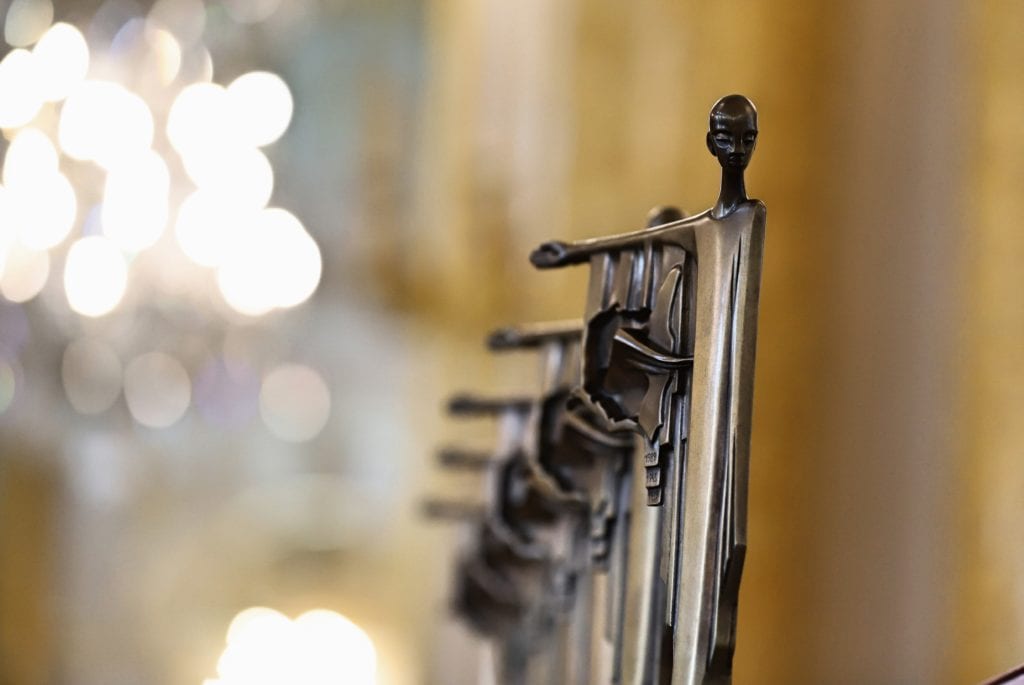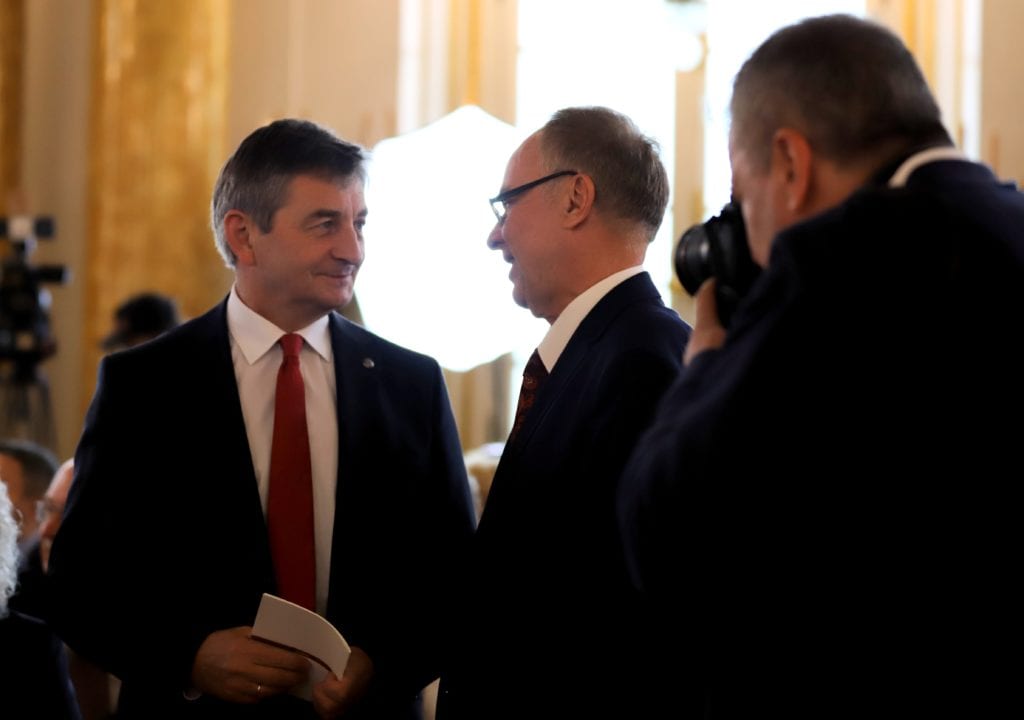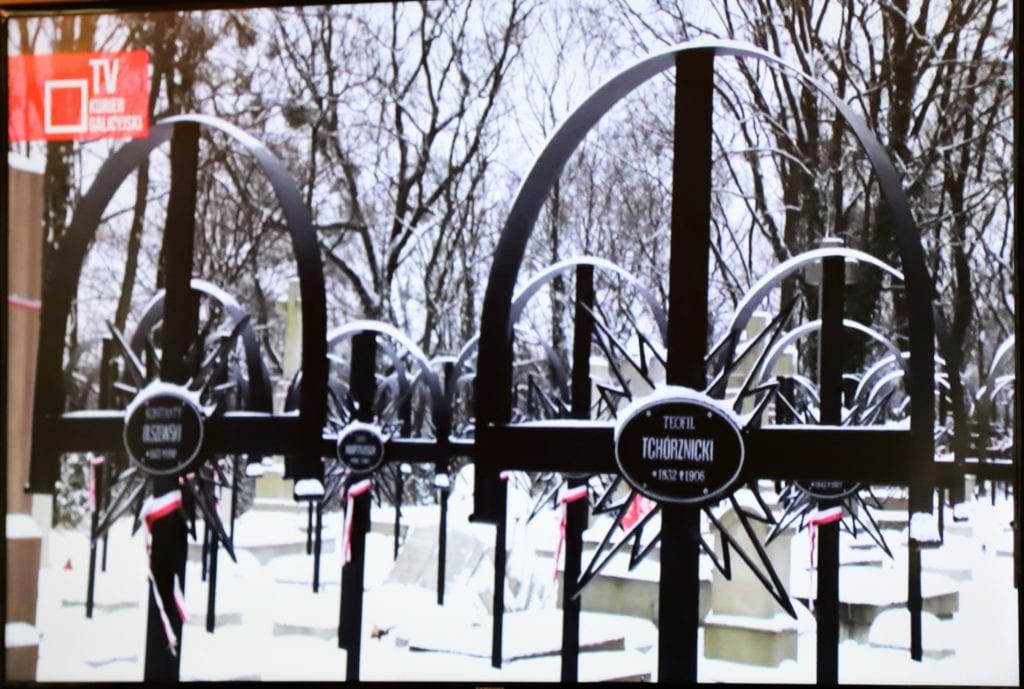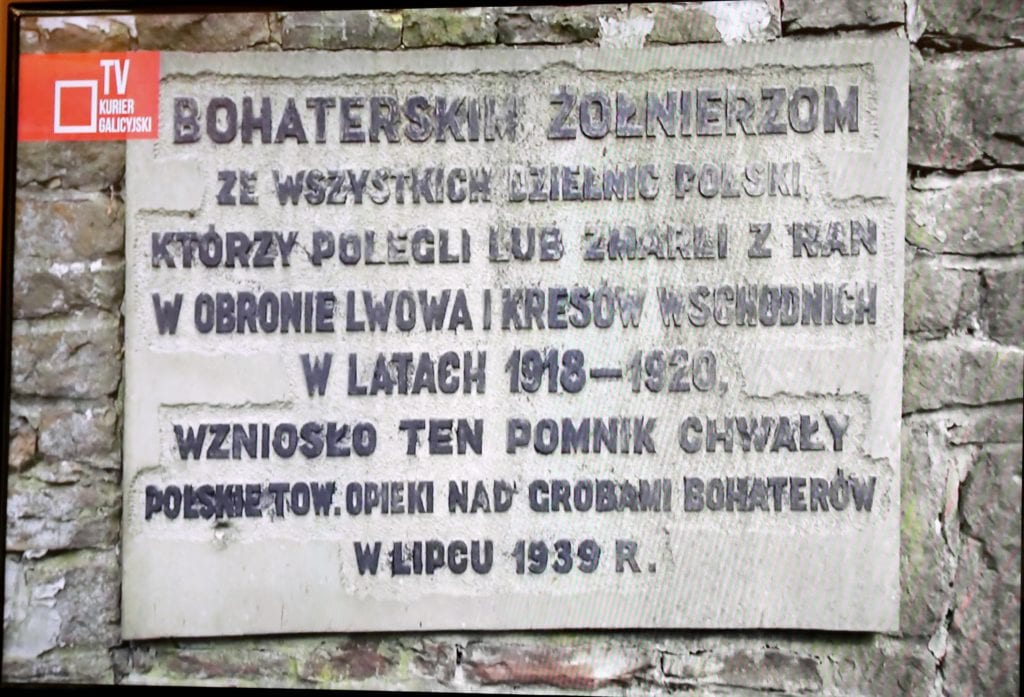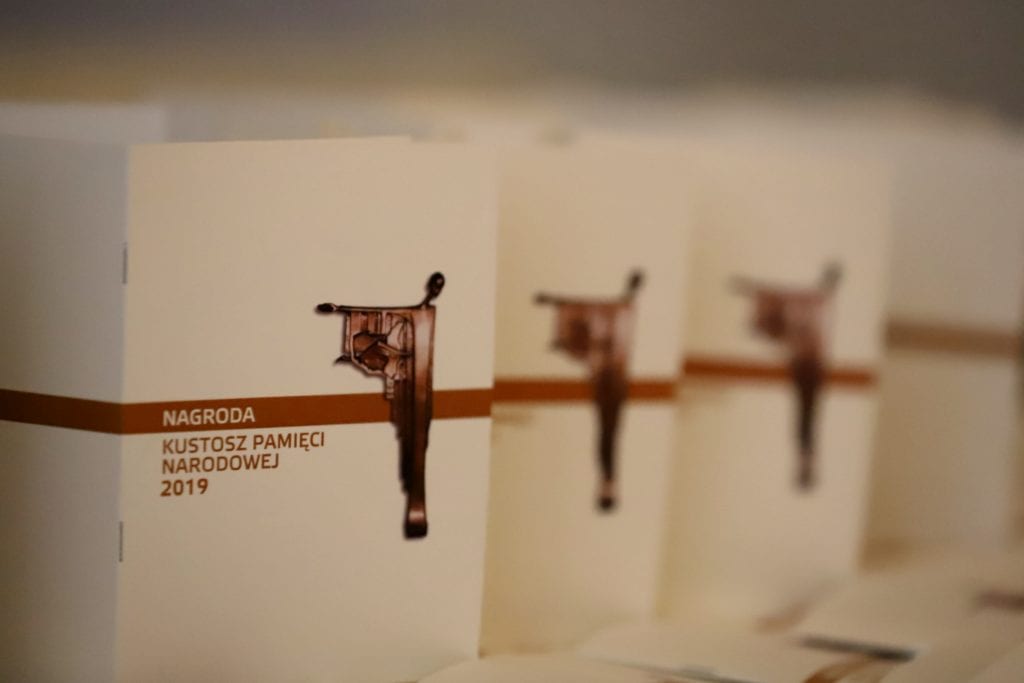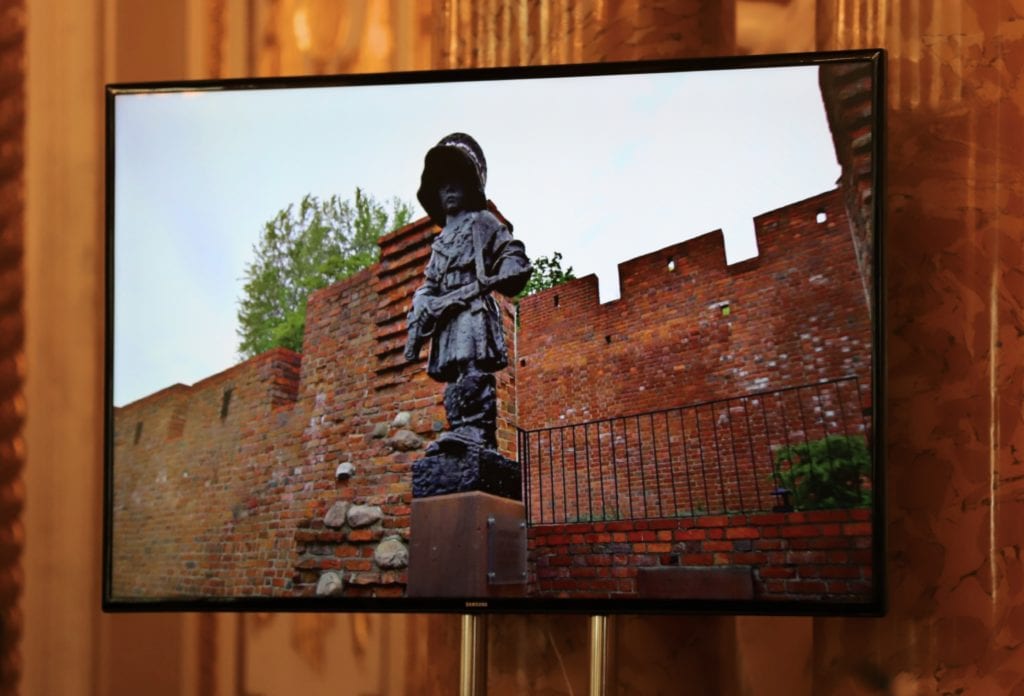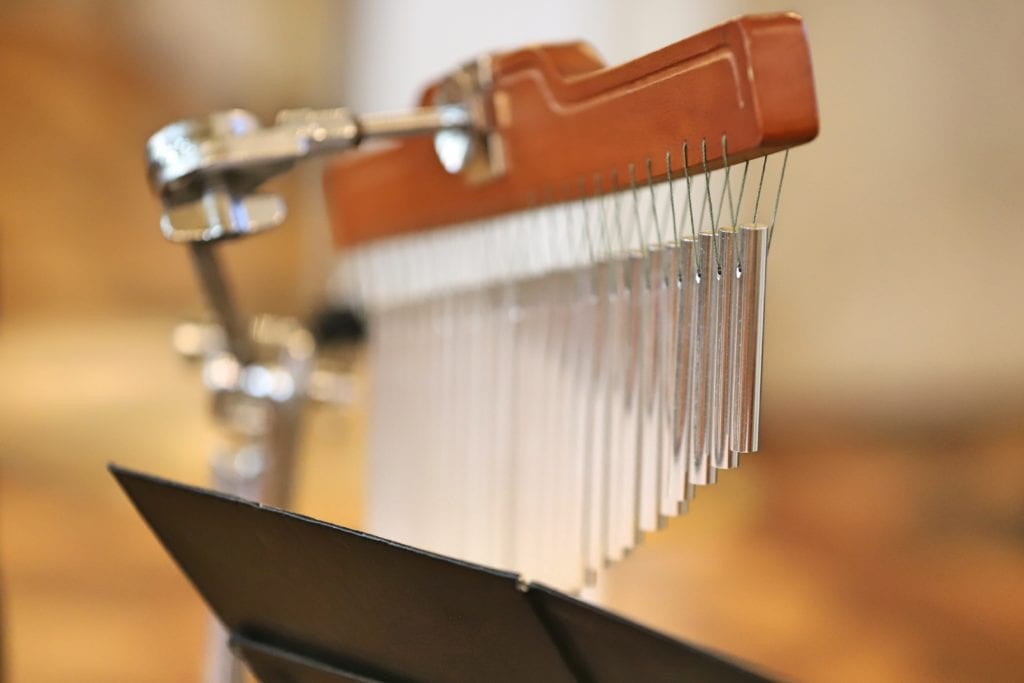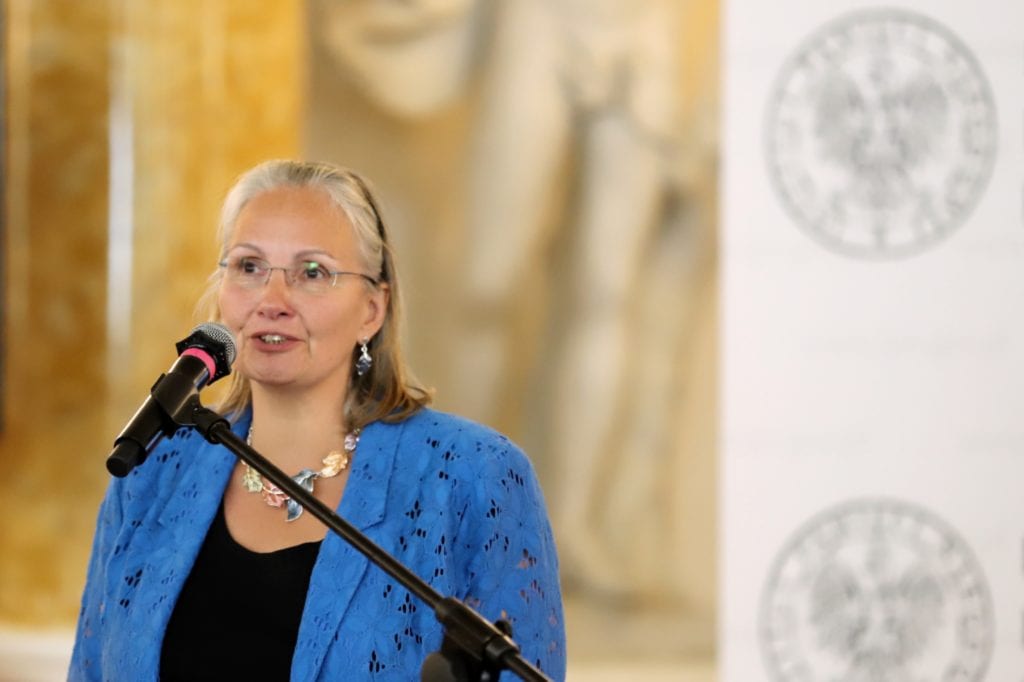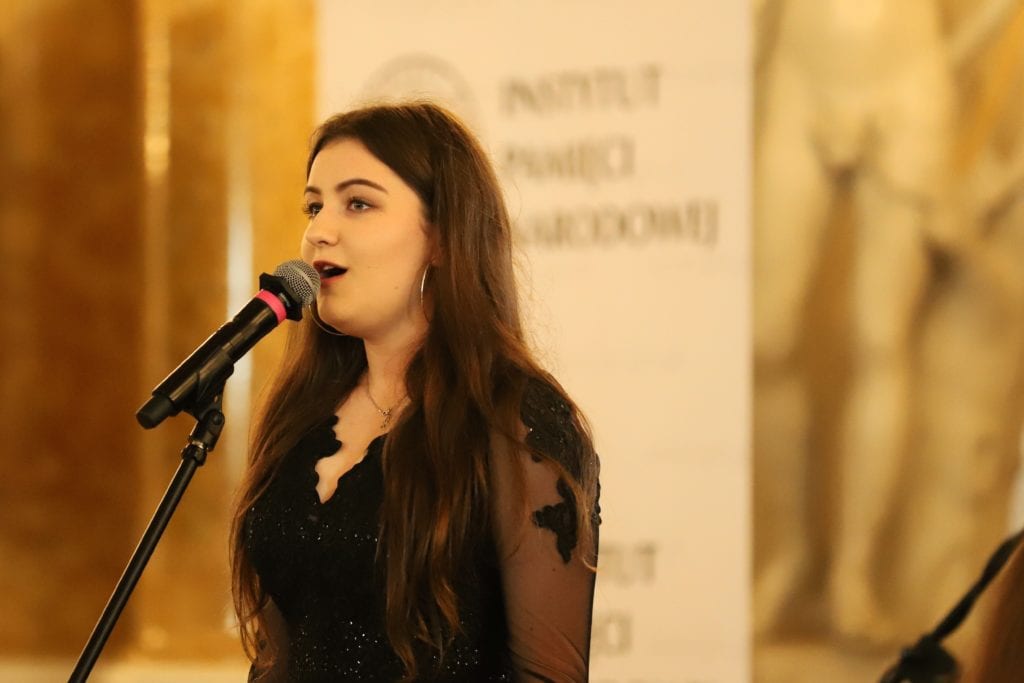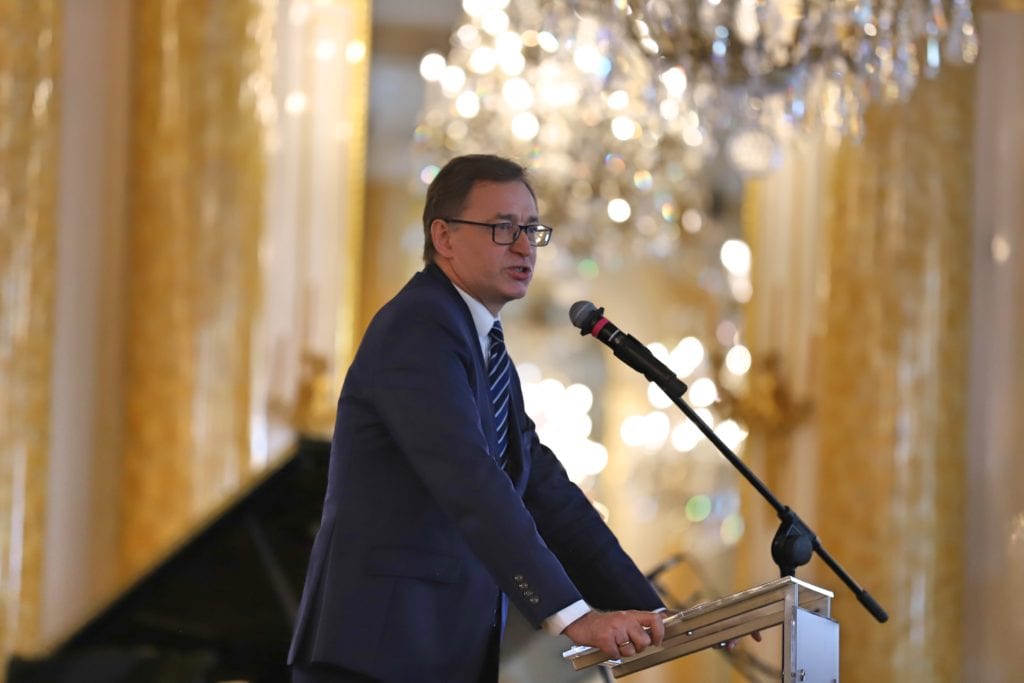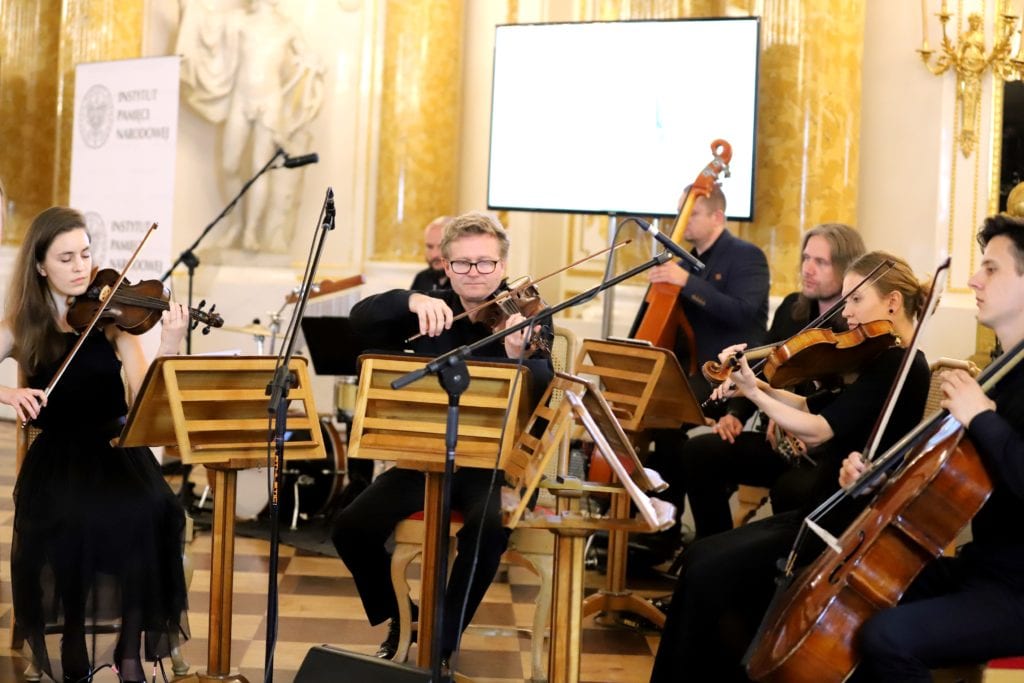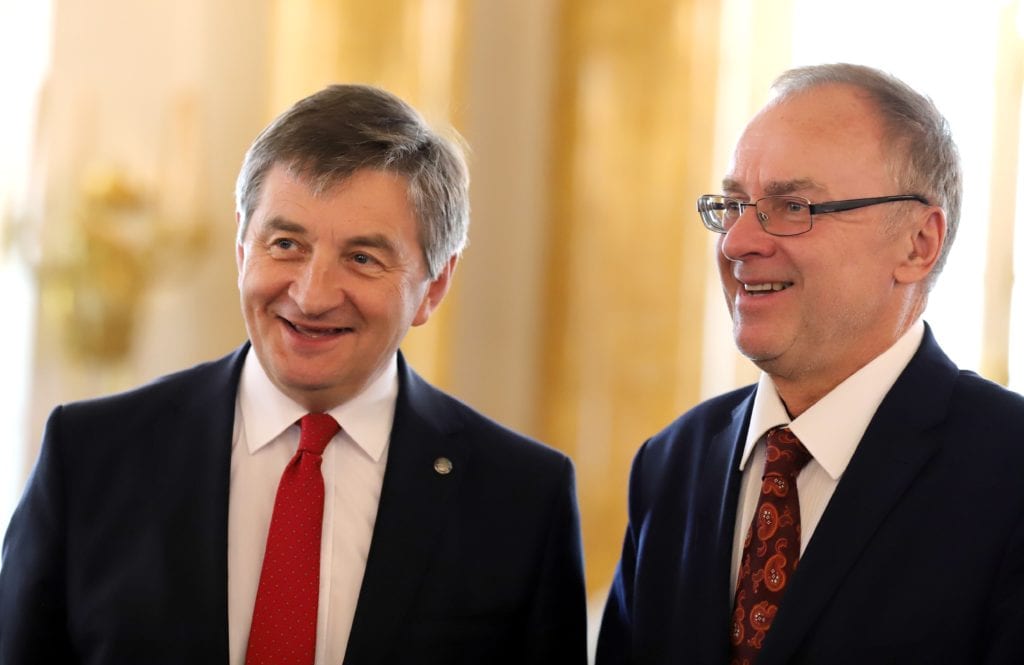Woe to the nation that does not take care to preserve the mementos of the past; then it writes the sentence of doom for itself," these words of St. Raphael Kalinowski, an insurgent of January Uprising, are the motto of the prize awarded by the Institute of National Remembrance.
The Custodian of Memory is awarded to people who devote themselves to Poland - they cultivate its tradition, history, protect the national heritage of the country that suffered partitions, wars and occupation from oblivion.
The Speaker of the Sejm Marek Kuchciński took part in the ceremony at the Royal Castle, during which the "Kustosz Custodian of National Remembrance" was awarded for the 18th time. This year's laureates are prof. Wanda Półtawska, Janusz Horoszkiewicz, Marek Strok, the Polish Society for the Care of Military Graves in Lviv, and - posthumously - Ryszard Kaczorowski.
- The 20th century wanted to condemn us to death, to become a a nation of renegades. But we did not become them, because there were always those who plans: no. And today the custodians of national memory are such people". said the president of the Institute of National Remembrance, Jarosław Szarek, who handed awards,
Wanda Półtawska She is a psychiatrist; during the war she was a prisoner of the German Nazi concentration camp in Ravensbrueck (as a 20-year-old girl she was sentenced to death there in November 1941; pseudo-medical experiments were conducted on her there); after the war she became friends with Karol Wojtyła - since 1978 Pope John Paul II.
Thrown during the German occupation from the surrounding world of love and friendship into the atmosphere of the cruelty of the Gestapo prison and the Nazi hangover, she did not feel hatred, but great surprise: how is it possible for a human being to inflict such suffering on a human being?
Janusz Horoszkiewicz With his own money and his own hands he erected more than 40 crosses commemorating the murdered Poles in Volhynia. In addition to the crosses mentioned above, numerous plaques commemorating the victims of the genocide of 1943 were unveiled at Polish memorial sites thanks to Janusz Horoszkiewicz's efforts. Particularly noteworthy is the plaque unveiled in the Orthodox church in the village of Butejki in memory of Petr Bazeluk, a Ukrainian righteous man who risked his own life to save his Polish neighbor Mieczysław Słojewski and his son Edward from death at the hands of the Ukrainian Insurgent Army.
IPN emphasizes that he is "a steadfast guardian of the Polish heritage in Volhynia, an advocate and preacher of reconciliation in the truth of Polish Polish and Ukrainian nations".
Marek Strok is an outstanding expert and researcher on the Warsaw Uprising. "His fascination with the fate of the soldiers of the Polish Underground State has resulted in the most complete collection of biographies of Warsaw insurgents, invaluable to any historian dealing with the history of the armed uprising 75 years ago. Marek Strok, although a self-taught enthusiast, has an enormous scientific and historical output, and in terms of historical workshop he is in no way inferior to the professionals. For several dozen years, cooperating closely with insurgent circles, he has been documenting the history of the underground and insurgent Warsaw," wrote the IPN.
Polish Society for the Care of Military Graves in Lviv is, in turn, an organization whose main and most important task in the first years of its activity became the reconstruction of the Cemetery of the Defenders of Lwow, also known as the Cemetery of the Defenders of Eaglets. This necropolis is a separate part of Lychakiv Cemetery, where graves of Polish defenders of Lviv, killed in 1918-20, are located. The reconstruction of the necropolis began in 1989; it was solemnly reopened on 24 June 2005. Today the Polish Society for the Care of Military Graves, headed by Janusz Balicki, takes care of it and other sites of Polish national memory in the vicinity of Lviv, e.g. in Zadwór.
Ryszard Kaczorowski was the president of Poland in exile in 1989-90; after the election of Lech Walesa as president, he transferred to him the insignia of the presidential power of the Second Republic of Poland. He died on April 10, 2010 in the crash of the Tu-154 plane near Smolensk.
mo, source IPN
Photo by Marta Olejnik


